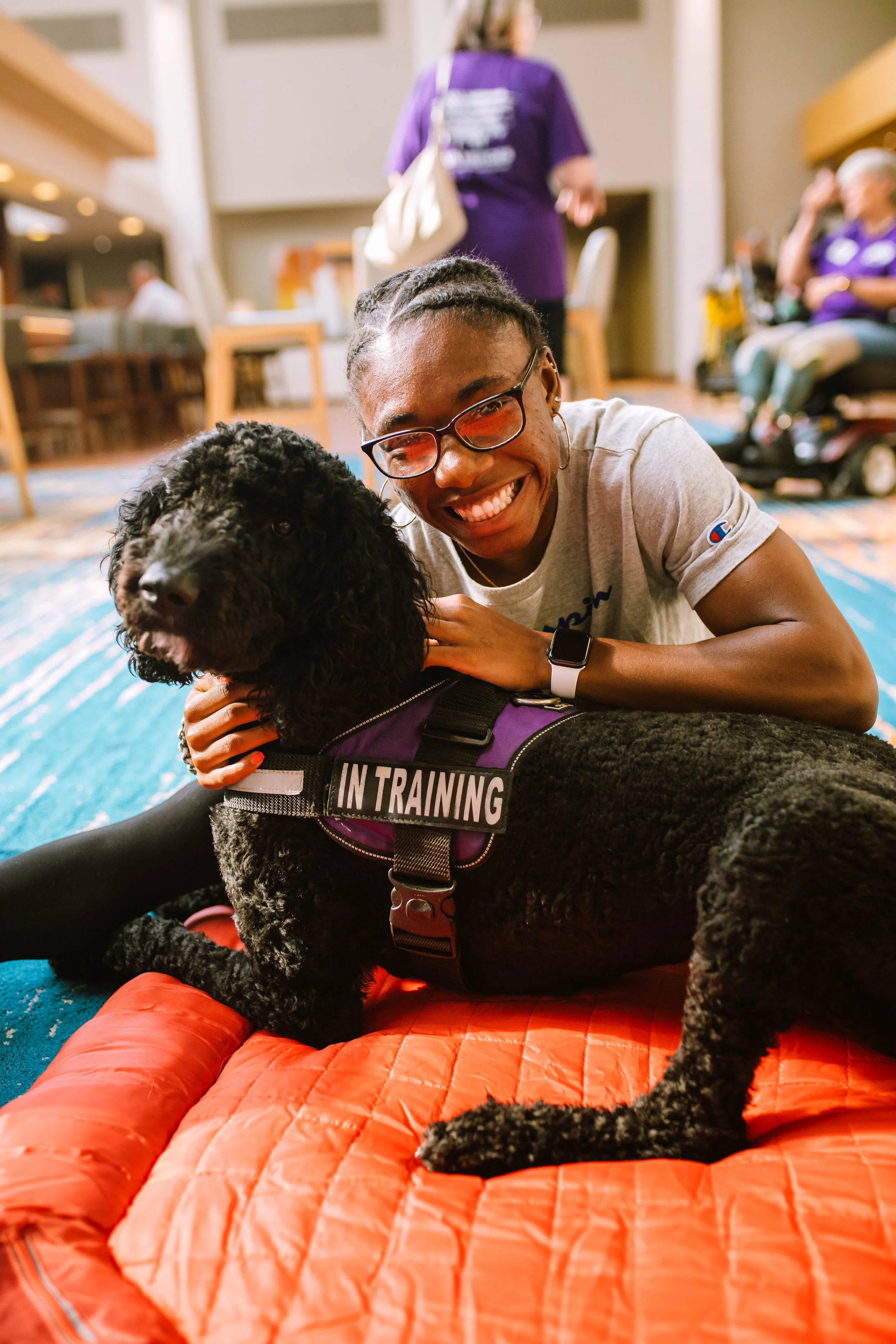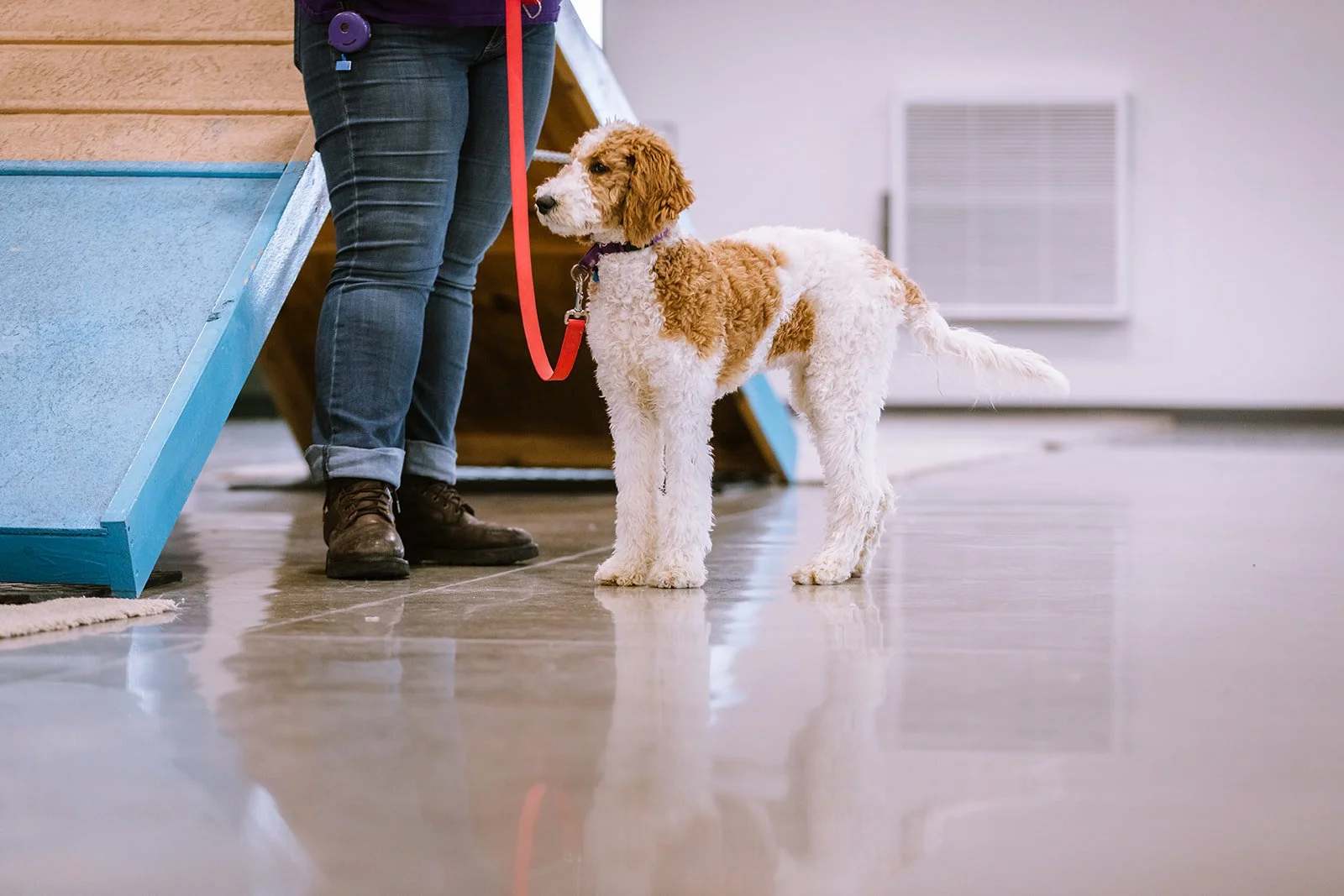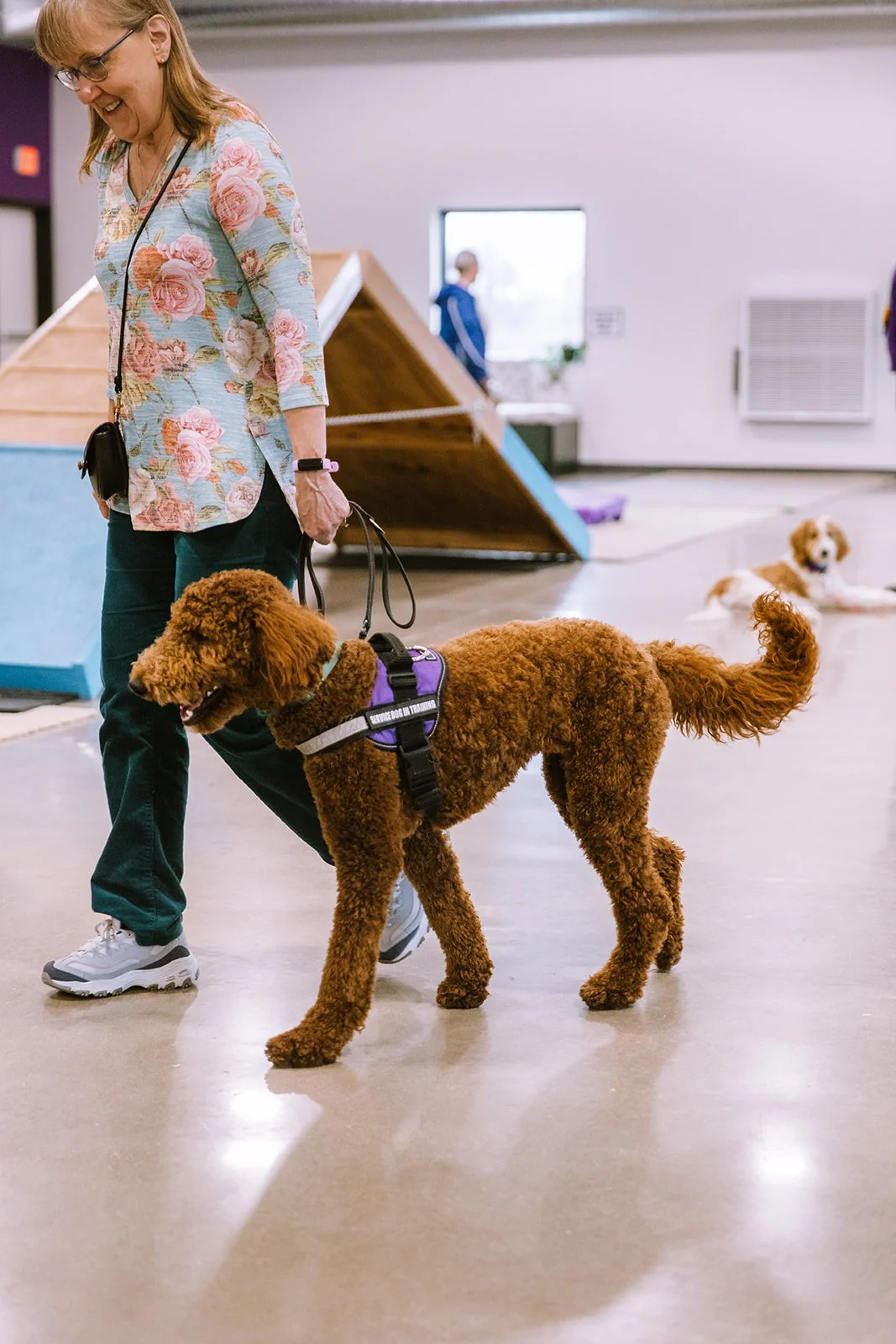
Canines for Change:
Michigan’s Leading Facility &
Service Dog Organization
Highly trained service and facility dogs enhancing the lives
of children, adults, and communities across Michigan.
Who We Are
Canines for Change provides highly trained service and facility dogs that empower children and adults with disabilities to live more active, independent lives. We’re also dedicated to educating the broader community about the life-changing impact of these partnerships through outreach and hands-on learning.
We believe this work should be accessible to everyone. Our team, board, volunteers, and sponsors are committed to serving all people—regardless of race, ethnicity, age, gender identity, sexual orientation, income level, religion, or ability.
-

Services Dogs
Our service dogs offer personalized, task-trained support that empowers children and adults to live with greater independence.
-
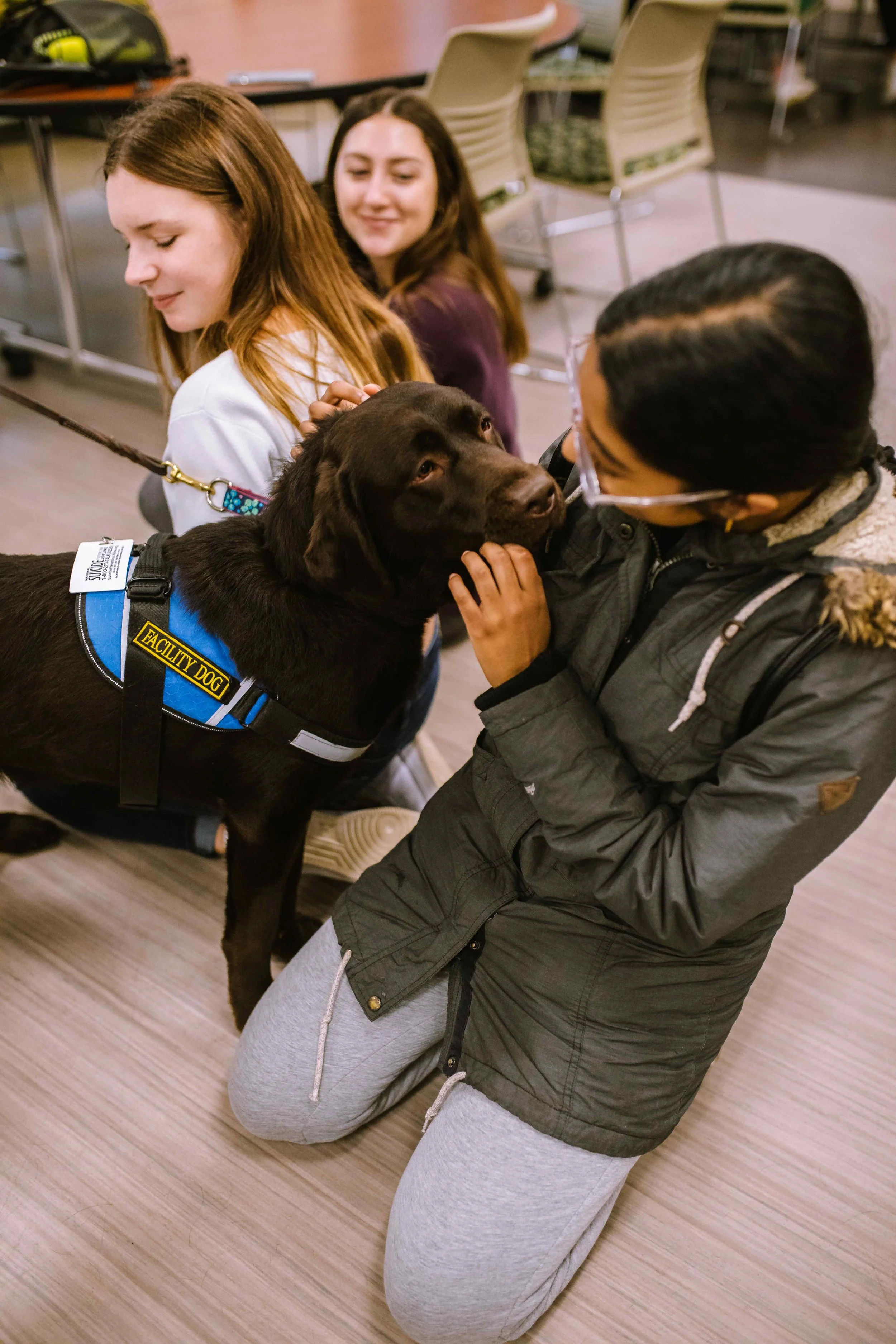
Facility Dogs
Our Dogs in Schools and Facility Dog programs help students and communities thrive through connection, calm, and engagement.
-
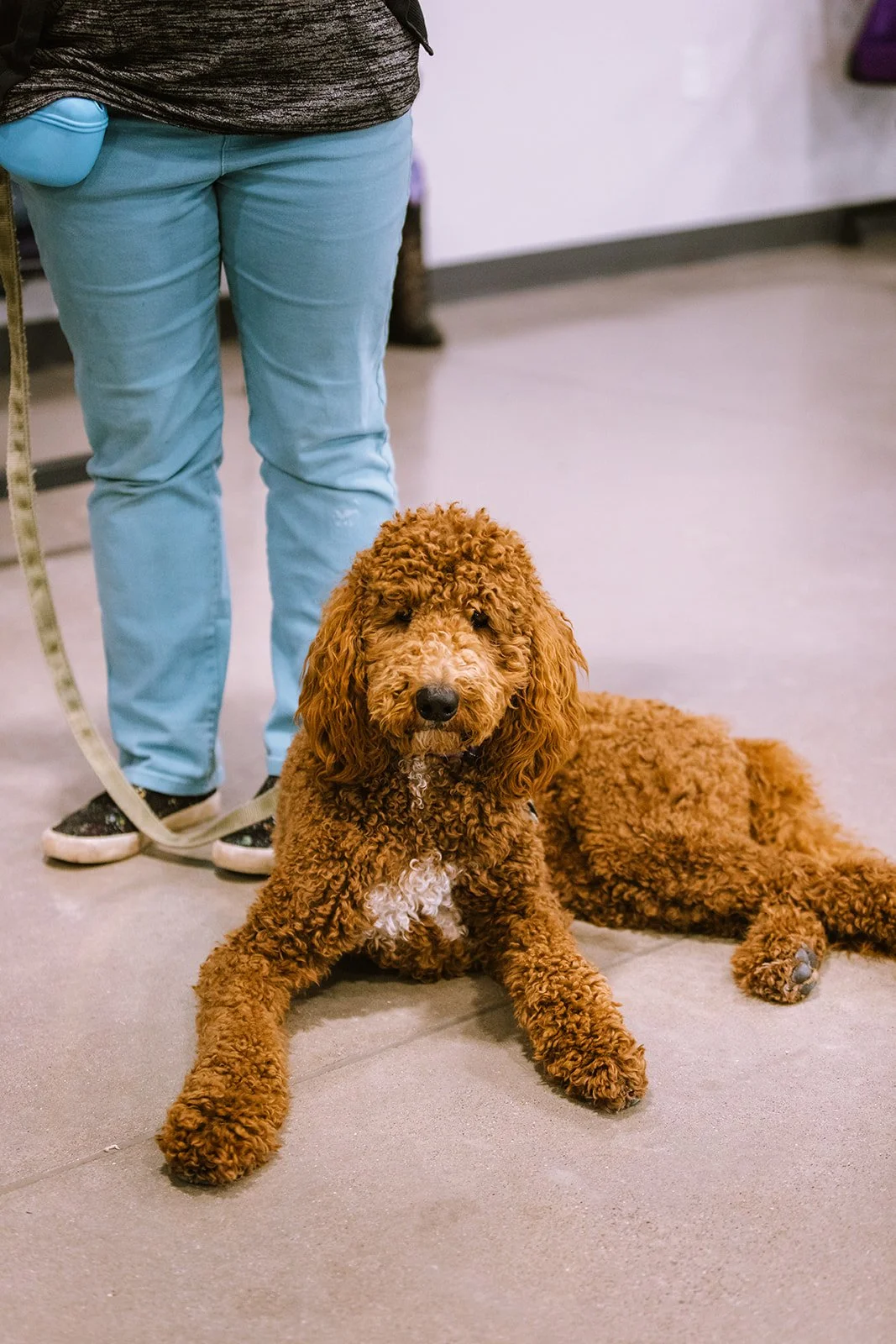
Obedience Class
Join a group class to strengthen your bond with your dog—while supporting the future of service dog training.
Puppy Raisers Needed!
Help raise a future service dog—and change a life.
Canines for Change is seeking dedicated volunteers to care for and train puppies during their first 5-6 months. As a puppy raiser, you’ll provide a loving home and attend weekly obedience classes in Lansing, focusing on basic skills and socialization.
Puppy raisers play a vital role in preparing dogs for their future with children, adults, and community partners.

Service dogs change lives every day — and you can be part of it. From puppy raising to event support, volunteers make it all possible.
See Our Dogs in Action
Priority Health Partnership
“See how our dogs in schools program is helping Michigan kids build confidence and reduce anxiety through the Priority Pups initiative.”
Scout at Muskegon Schools
“Meet Scout, our facility dog making a real difference by supporting students’ emotional well-being and learning every day.”
Keep exploring stories of impact, resilience, and the dogs making it possible.

Be Part of the Journey
Your gift helps place service and facility dogs with people across the country—building life-changing partnerships every day.
Upcoming Events
Join us for puppy yoga, obedience classes, volunteer days, and more!
Our events are a fun way to support our mission, connect with our dogs, and get involved in the community. Check back often or follow us on social media to see what’s coming up!

